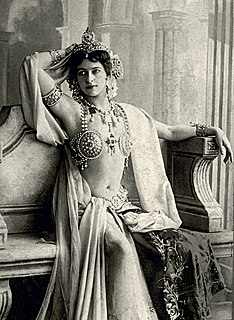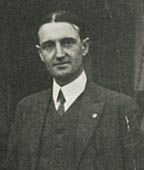A Quote by Paul Auster
I guess the toughest things in translations are word play, which can never be reproduced exactly.
Related Quotes
The first objection to Darwinism is that it is only a guess and was never anything more. It is called a "hypothesis," but the word "hypothesis," though euphonious, dignified and high-sounding, is merely a scientific synonym for the old-fashioned word "guess." If Darwin had advanced his views as a guess they would not have survived for a year, but they have floated for half a century, buoyed up by the inflated word "hypothesis." When it is understood that "hypothesis" means "guess," people will inspect it more carefully before accepting it.
Just look at the history of cinema. The most reproduced male character is probably the hero and the most reproduced female character is probably the sex object. I think those stereotypes have been reproduced over and over again. It also changes our expectations when it comes to a situation like this in real life.
The continually progressive change to which the meaning of words is subject, the want of a universal language which renders translation necessary, the errors to which translations are again subject, the mistakes of copyists and printers, together with the possibility of willful alteration, are themselves evidences that human language, whether in speech or print, cannot be the vehicle of the Word of God.
The Greek word euphuia, a finely tempered nature, gives exactly the notion of perfection as culture brings us to perceive it; a harmonious perfection, a perfection in which the characters of beauty and intelligence are both present, which unites "the two noblest of things" - as Swift most happily calls them in his Battle of the Books, "the two noblest of things, sweetness and light."
Never use a metaphor, simile, or other figure of speech which you are used to seeing in print. Never use a long word where a short one will do. If it is possible to cut a word out always cut it out. Never use the passive voice where you can use the active. Never use a foreign phrase a scientific word or a jargon word if you can think of an everyday English equivalent. Break any of these rules sooner than say anything outright barbarous.
Mann was conscious of adopting different perspectives in different parts of the novella, but my guess is that there are plenty of passages in which the resonance of the words he chose struck him as exactly right (even though he didn't probe to discover exactly what tone or narrative device gave them that effect).
And treating poetry as a performing art emphasizes its ephemerality. A printed poem can be endlessly reprinted, photocopied, scanned, uploaded, cut and pasted - but a performance, even if somebody's there with a video camera, is one time only: the audience experiences something that won't exist when the performance is over, and which won't ever be reproduced in exactly the same form. I find that appealing.



































